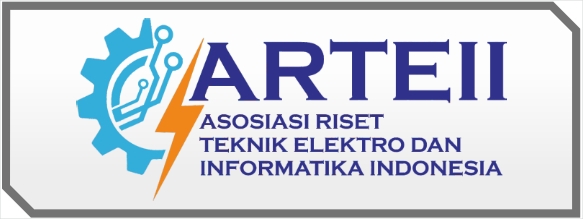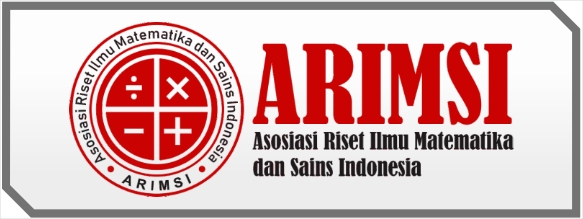Prinsip-Prinsip Muamalah dalam Perspektif Ekonomi Islam
DOI:
https://doi.org/10.59581/jmk-widyakarya.v3i1.4419Keywords:
Muamalah, Islamic Perspective, Islamic EconomicsAbstract
Muamalah in Islam deals with financial issues with the principles of justice, efficiency, transparency, anti-riba, anti-gharar (uncertainty) and social responsibility. This study was conducted with the aim of examining the principles of muamalah from an Islamic economic perspective and how these principles can be applied to the modern economy. The introduction of this study highlights the importance of Muamalah maintaining ethics and morals in economic transactions, especially in the face of increasingly complex global economic developments that are often not based on justice. This study uses qualitative methods and a descriptive-analytical approach. Primary data were obtained through interviews with Islamic economic experts and Islamic banking practitioners, and secondary data were obtained from related literature such as books, journals, and Islamic economic articles. Thematic analysis was conducted to identify the application of muamalah principles in various economic sectors. The results of the study indicate that the principles of muamalah have been widely used in Islamic banking, Islamic investment and Islamic e-commerce with a focus on justice, efficiency and transparency. However, there are challenges in implementing these principles, especially related to the prohibition of gharar and riba in the speculative global financial system. This study concludes that the principle of muamalah can be the foundation for a better and more sustainable economic system, if supported by proper education and regulation.
References
Amin Isfandiar, A. (2021). Institusionalisasi akad muamalah. Jurnal Investasi Islam, 5(1), 1–18. https://doi.org/10.32505/jii.v5i1.1052
Asiva Noor Rachmayani. (2015). No 主観的健康感を中心とした在宅高齢者における健康関連指標に関する共分散構造分析Title.
Azty, A., Fitriah, F., Sitorus, L. S., Sidik, M., Arizki, M., Siregar, M. N. A., Siregar, N. A., Budianti, R., Sodri, S., & Suryani, I. (2018). Hubungan antara Aqidah dan Akhlak dalam Islam. Journal of Education, Humaniora and Social Sciences (JEHSS), 1(2), 122–126. https://doi.org/10.34007/jehss.v1i2.23
Bila, S., Nada, K., Novita, N., Hafizah, N., Wismanto, W., & Azzahra, N. (2024). Pengaruh Penggunaan Media Sosial Terhadap Akhlak Siswa Madrasah Ibtidayah. 2, 266–275.
Desminar. (2019). Akad Wadiah Dalam Perspektif Fiqih Muamalah. Menara Ilmu, XIII(3), 25–35.
Fadhly, M., Alif, M., Aziz, A., & Sagara, B. W. (2024). Implementasi Media Pembelajaran Sederhana Berbasis Digital Pada Mata Pelajaran Bahasa Arab. 1(3).
Fahmi, T. (2022). Konsep Riba Dalam Fiqih Muamalah Maliyyah Dan Praktiknya Dalam Bisnis Kontemporer. Jurnal Ilmiah Ekonomi Islam, 8(02), 1270–1285.
Habibullah, E. S. (2018). Prinsip-Prinsip Muamalah Dalam Islam. Ad Deenar: Jurnal Ekonomi Dan Bisnis Islam, 2(01), 25. https://doi.org/10.30868/ad.v2i01.237
Harisah, R. K., & Susilawati, Y. (2020). Konsep Islam Tentang Keadilan Dalam Muamalah. Syar’Ie, 3(2), 172–185.
Hasan, W. A., Ibadah, F., & Muamalah, A. (n.d.). AL-ISLAM.
Hukum, J., & Syariah, E. (2018). J-HES, 2(1).
Maharani, D. D. (2020). Implementasi Prinsip-Prinsip Muamalah dalam Transaksi Ekonomi: Alternatif Mewujudkan Aktivitas Ekonomi Halal. Jurnal Hukum Ekonomi Syariah, 4(1), 131. https://doi.org/10.30595/jhes.v0i1.8726
Mahessa, A., Pratama, R. A., Sagara, B., & Ardinata, F. W. (2024). Pandangan Islam tentang Riba dalam Muamalah. 340–346.
Sari, R. K., Ulfani, S. M., Lestari, A., Hasanah, D. P., & Wismanto. (2024). Kesempurnaan Akhlak Dan Pribadi Nabi Muhammad Rasulullah Sallallahu ’alaihi Wasallam. 2, 253–265.
Syukri, A. R., Wismanto, K. A. R. Q. (2023). Manajemen kepala Madrasah Ibtidaiyah dalam menumbuhkan pendidikan karakter religius pada era digital. Jurnal on Education, 6(1), 13. https://doi.org/10.29210/146300
Wartoyo, W. (2020). Rekontruksi Hukum Transaksi Muamalah Dengan Pendekatan Kaidah Fiqhiyyah. Al-Mustashfa: Jurnal Penelitian Hukum Ekonomi Syariah, 5(1), 42. https://doi.org/10.24235/jm.v5i1.6788
Wismanto Abu Hasan. (2016). Fiqih Ibadah. Jurnal Energi Dan Manufaktur, 9(2). Nasya Expanding Manajemen. https://doi.org/10.22219/.v2i2.4219
Wismanto Abu Hasan. (2018). Fiqih Muamalah (1st ed.). Cahaya Firdaus.
Zaky Raihan, D. P. H., Wardah Yuni Kartika, Lidyazanti, W. (2024). Dampak Media Sosial Terhadap Akhlak Di Era Globalisasi. 2, 301–315.
Downloads
Published
How to Cite
Issue
Section
License
Copyright (c) 2024 Jurnal Mahasiswa Kreatif

This work is licensed under a Creative Commons Attribution-ShareAlike 4.0 International License.

















